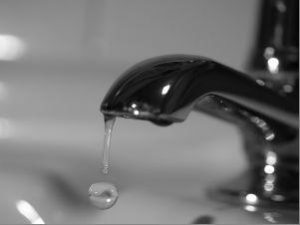Job Description of a Plumber
Plumbers are persons who are responsible for the provision and maintenance of water and sanitation systems. They act as installers and repairers, for fitting bathrooms and radiators, to unblocking drains and pipes. You may begin your career as an apprentice or trainee, and will learn on the job skills alongside classroom based education. Plumbers are generally expected to be helpful, and willing to work at short notice in damp conditions, and capable of remaining calm in stressful situations. The hours depend on the duration of the job. Being a Plumber is a good job for many people, but the key traits to have are to be calm under pressure, honest, analytical and willing to work until a solution is found.
Entry Requirements
Many Plumbers start life as trainees or apprentices, or gain qualifications and then find employment. If you study for a City and Guilds or EAL Diploma level 2 and 3, you will learn both the text based and hands on skills required of a plumber. You can then apply this in real life in the workplace, or become a plumbers apprentice for further experience, or to excel in a specific field such as heating or shower fitting. Starting out as an apprentice is usually low paid, however it will give you more experience alongside your studies.
Responsibilities and duties
Standard duties include swift and accurate diagnosis of problems in heating/plumbing systems, installing or removal of components such as radiators, baths, showers and boilers. Drawing plans and schematics to show how a system will be installed and work. Repairing issues such as leaking pipes, blocked drains and faulty boiler systems. You may also be responsible for fitting whole bathrooms and heating systems. If you deal with boilers you will need to be Corgi registered.
Related: Plumber CV Example
Working hours
These may vary depending on the duties and job you are doing. Some plumbing firms may employ you on a set shift answering calls or going to pre booked appointments. However others may require you to be available as and when required, and if an emergency situation arises you may find yourself responsible for a job during the night or on weekends. Most plumbers work 8 hour shifts, regardless of the type of call out. If you are a self-employed plumber then you have the option to take emergency calls or just carry out routine tasks.
Skills and Training Development
Plumbers can expect to progress through their careers by improving skills and knowledge. You could study towards additional qualifications in any vocational area to improve prospects, although a pay rise often correlates with time service. Gaining certification such as CORGI registration can help you to earn more by being able to inspect and repair gas based systems, and gaining skills in health and safety and disaster management can also improve prospects by making you more suitable for management positions.
How to Become a Plumber
If you intend to become a plumber you will need to undertake all the relevant qualifications as noted above. You can then start out on your own as self-employed or contact a plumbing firm directly with your CV and a professional covering letter to discuss their current vacancies.
Related: Plumber cover letter example
Average Plumber Salaries
The average salary for an apprentice Plumber is £16,000 PA.
The average salary for a qualified Plumber is £21,000 PA.

Leave a Reply